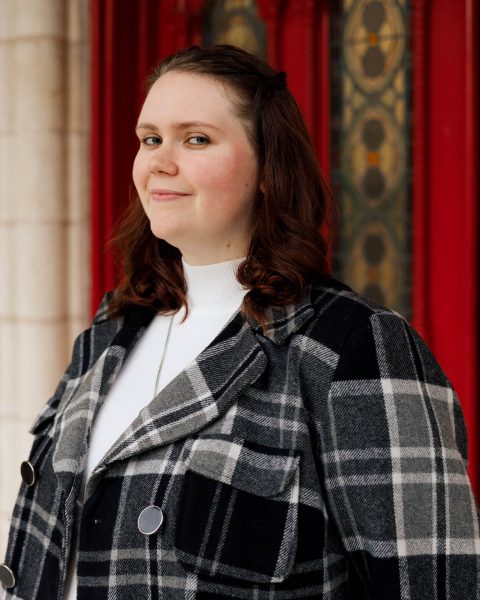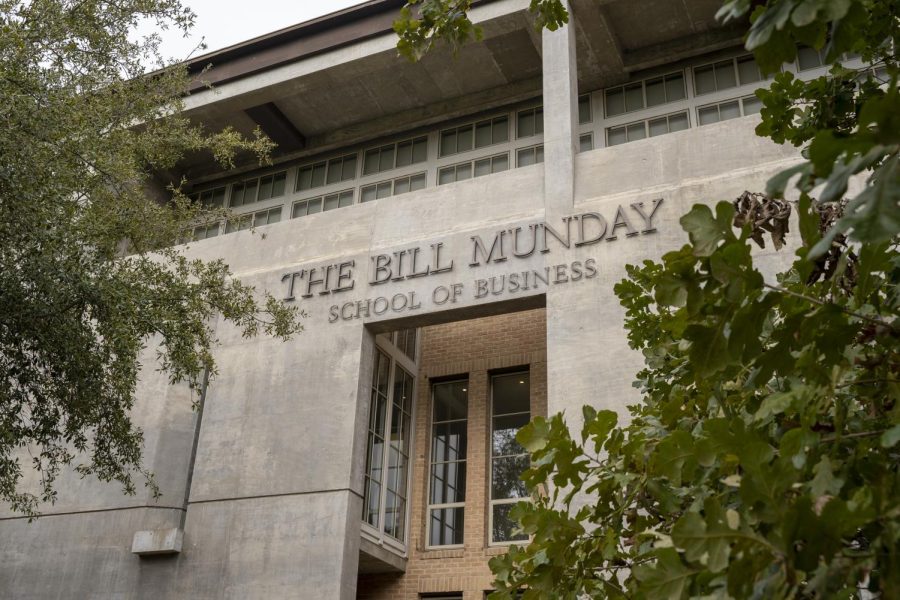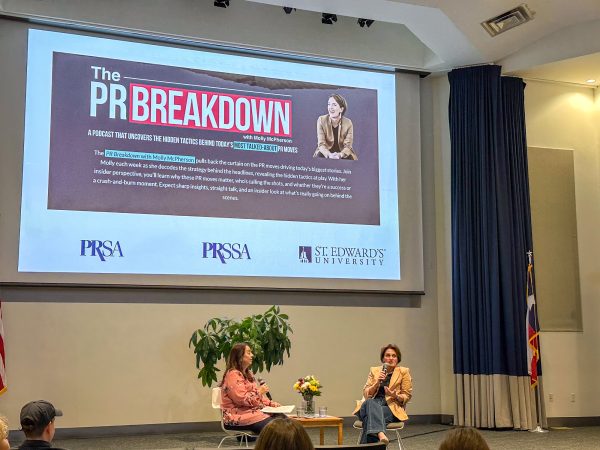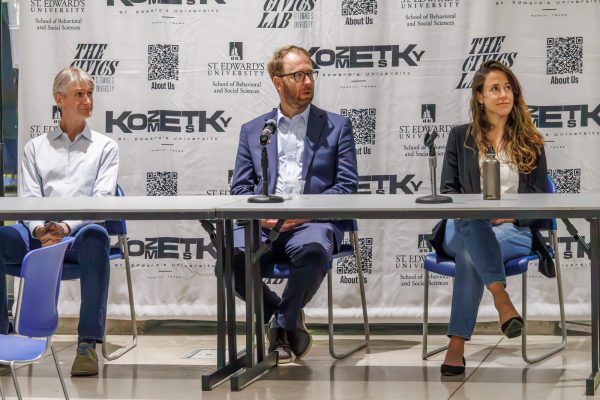Recently acquired Bill Munday School of Business AACSB accreditation years in the making
The St. Edward’s Bill Munday School of Business achieved its long-term goal of receiving AACSB accreditation this semester. Faculty and staff in the school expanded its research endeavors and ensured the curriculum’s alignment with the AACSB’s set of standards to make this happen.
“AACSB is all about making sure that the university and the school’s mission are reflected in the curriculum and in everything we do,” the Dean of the Munday School of Business Louise Single said.
Apart from the university-wide accreditation from the Southern Association of Colleges and Schools Commission on Colleges, the Munday School of Business had not received any kind of accreditation before the AACSB.
According to Single, they spent five years optimizing the teachings of the school’s faculty, staff and curriculum before applying to AACSB. After a review of the application, the school was approved to undergo the five-year accreditation process, but it was expected to continue making improvements in line with the AACSB’s set of standards. This involved fine-tuning the curriculum and placing more emphasis on research.
One tenet of AACSB that aligned with St. Edward’s is a recognition of societal impact, which Single explained was prevalent in the business research conducted by faculty.
Faculty research continues to test theoretical frameworks and pedagogical techniques. Professor Mary Dunn’s inquiry into management theories examined how professional networks impact the success of professional development. Single’s written cases for accounting analyze how well students learn from given examples of fraud.
“The work that we do in research with our students, in our curriculum, in our service to the community – all have some kind of impact on society in some way,” Single said.
The AACSB also emphasized the importance of constant innovation. Again, this is shown by the research conducted at the university. According to Single, being innovative meant having faculty engaged in professional development and keeping on top of disciplinary areas; essentially being leaders in their disciplinary areas.
According to Associate Dean Lorelai Ortiz, the business school conducted ongoing assurance of learning assessments to measure student performance and comprehension. The assurance of learning assessments informed faculty and staff what teaching methods were successful and revealed what needed to change in the curriculum.
“It really allows us to dig very deep and have a detailed bird’s-eye view and then zero in on the thing that needs to be improved so that the students have a better outcome, a better learning experience,” Ortiz said.
In addition to adjusting focus, the business school had to submit self-reports on its progress and undergo a peer team review to receive the accreditation. According to Single, deans from Evansville University, Manhattan College and Florida Southern College visited the campus and provided positive feedback on the program, highlighting the university-wide support of business programs.
“We had such a great team and such a great sense of commitment to the school and bringing (AACSB) to the university for our students,” Single said. “Ultimately, that is who is benefitting from it.”

Melissa Gunning is graduating this December with a degree in psychology, minor in writing and rhetoric and certificate in evidence-based addiction counseling....









